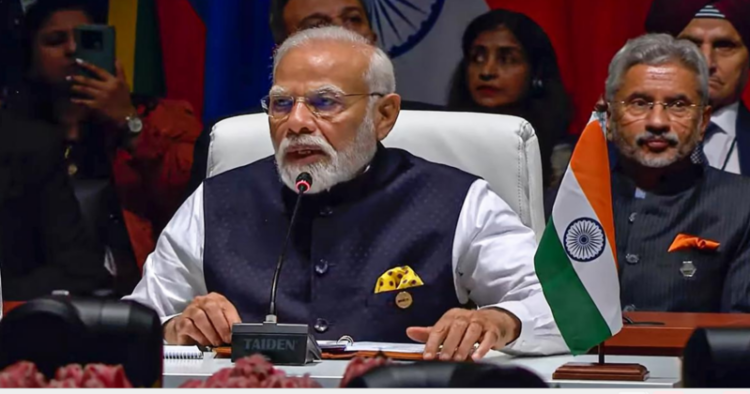Prime Minister Narendra Modi is starting an ambitious international outreach as he begins his third term. His re-election is a key moment for India’s diplomacy, with important global meetings planned where India will discuss major issues with other world leaders. Modi will attend the G7 Summit in Italy’s Apulia region from June 13 to 15, 2024. Held at the luxury resort Borgo Egnazia, the summit will address serious global problems like the war in Ukraine and the Gaza conflict. Italy’s Prime Minister Giorgia Meloni invited Modi in April, showing the increasing recognition of India’s important role in global matters.
During his 24-hour visit, Modi is expected to meet with important leaders like US President Joe Biden, French President Emmanuel Macron, Japanese Prime Minister Fumio Kishida, and UK Prime Minister Rishi Sunak. Ukrainian President Volodymyr Zelenskyy will also be there and will lead a discussion on the Russian invasion of Ukraine. India continues to believe that the best way to resolve the conflict is through dialogue and diplomacy, as emphasized by Foreign Secretary Vinay Kwatra.
After attending the G7 Summit, India will join the Swiss Peace Summit from June 15 to 16, 2024, at the Burgenstock resort near Lucerne. This summit seeks to gain backing for Ukraine’s 10-point peace proposal, which calls for Russia to fully pull out its troops and be held responsible for war crimes. While it’s uncertain who will represent India, their involvement highlights India’s dedication to global efforts for peace.
In July 2024, Modi will attend the Shanghai Cooperation Organisation (SCO) Summit in Kazakhstan. The SCO, established in 2001, focuses on regional security issues, including terrorism and extremism. This summit provides a potential meeting between Modi and Chinese President Xi Jinping, amidst ongoing border tensions. It will be a critical platform for discussing regional security and cooperation.
The BRICS Summit in October 2024 will be another significant engagement, where Modi is expected to meet Russian President Vladimir Putin. The BRICS group, which now includes new members such as Egypt, Ethiopia, Iran, Saudi Arabia, and the UAE, represents a significant coalition of emerging economies. This summit in Kazan will be crucial for discussing global economic policies and strategic cooperation among member nations.
In short, Modi’s third term will also see a busy schedule of other diplomatic engagements:
- UN General Assembly and Summit of Future in New York (September)
- BIMSTEC Meet in Thailand (September)
- G20 Summit in Brazil (November)
- Annual Summit in Japan
- India-Asean Summit and East Asia Summit in Laos
- Modi’s international outreach also includes hosting leaders from various regions, including Europe, Africa, and Latin America, and possibly a Quad Summit in India
A key part of Modi’s diplomacy is the visit of US National Security Advisor Jake Sullivan to India on June 17, 2024. This will be the first visit by a top American official since Modi’s re-election. They will discuss working together on advanced technologies, defense cooperation, and the India-Middle East-Europe Economic Corridor to improve connectivity and strategic influence.
The India-Middle East-Europe Economic Corridor (IMEC), conceived during the G20 Summit in Delhi last year, is seen as a strategic response to China’s Belt and Road Initiative (BRI). This ambitious project aims to enhance connectivity and economic integration across Asia, the Middle East, and the West by developing comprehensive infrastructure networks, including roads, railways, and ports. The IMEC was developed as part of discussions at the G20 Summit in Delhi. IMEC aims to promote integration among three critical regions: Asia, the Middle East, and Europe. The initiative involves building comprehensive networks of roads, railways, and ports, which are essential for facilitating trade and movement between these regions.
Prime Minister Narendra Modi’s third term promises to significantly transform India’s approach to global diplomacy. By actively participating in key international summits such as the G7, SCO, and BRICS, Modi ji is positioning India as a central player in addressing critical global issues. His engagements in these high-profile forums, alongside bilateral meetings with world leaders, shows India’s rising influence and strategic significance on the international stage. As India faces various global challenges, Modi’s diplomatic efforts will be crucial in shaping international relations and achieving India’s strategic goals, cementing role of India as an important player on the world stage.


















Comments